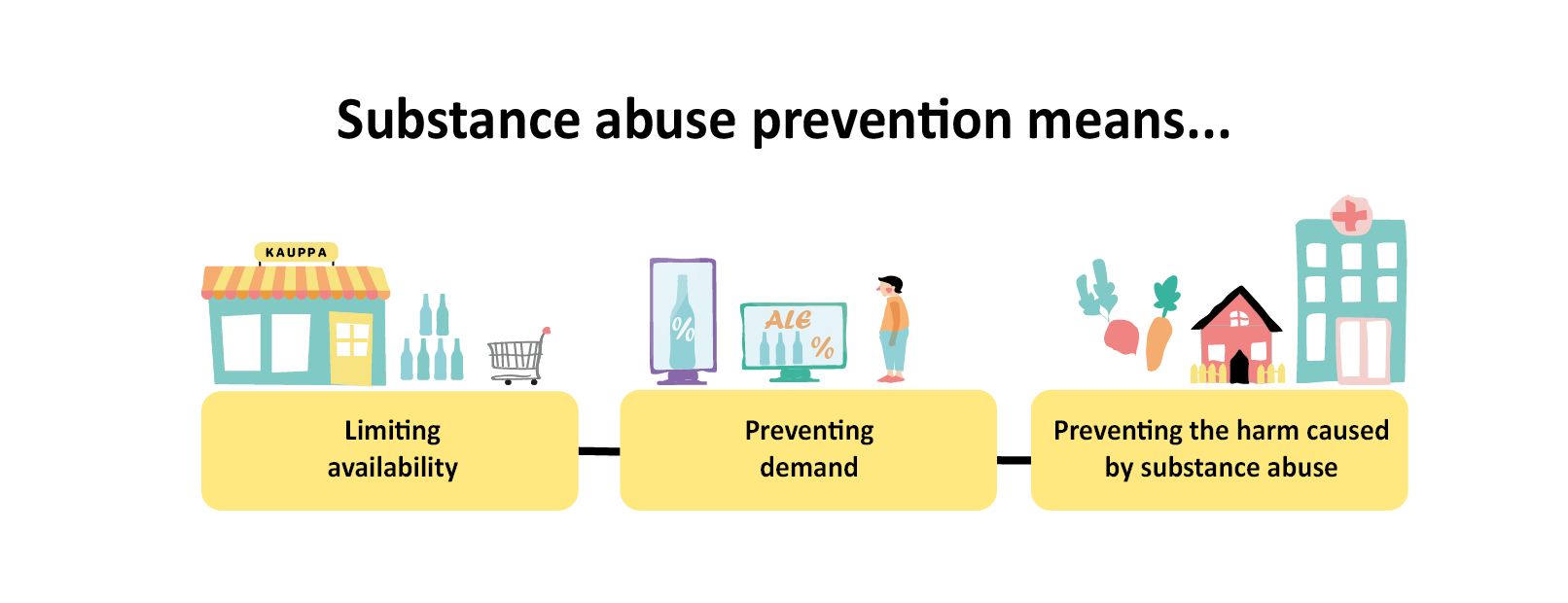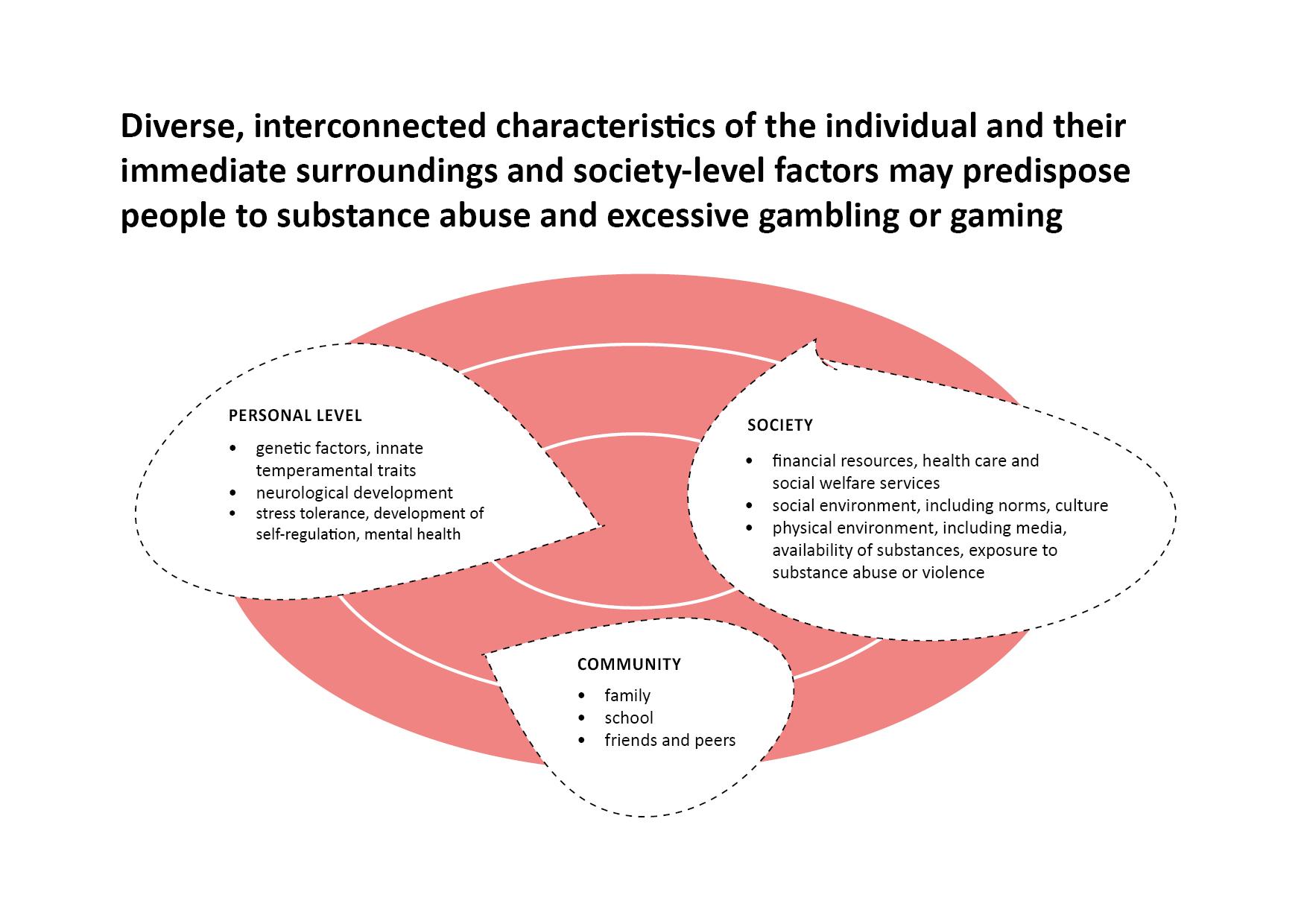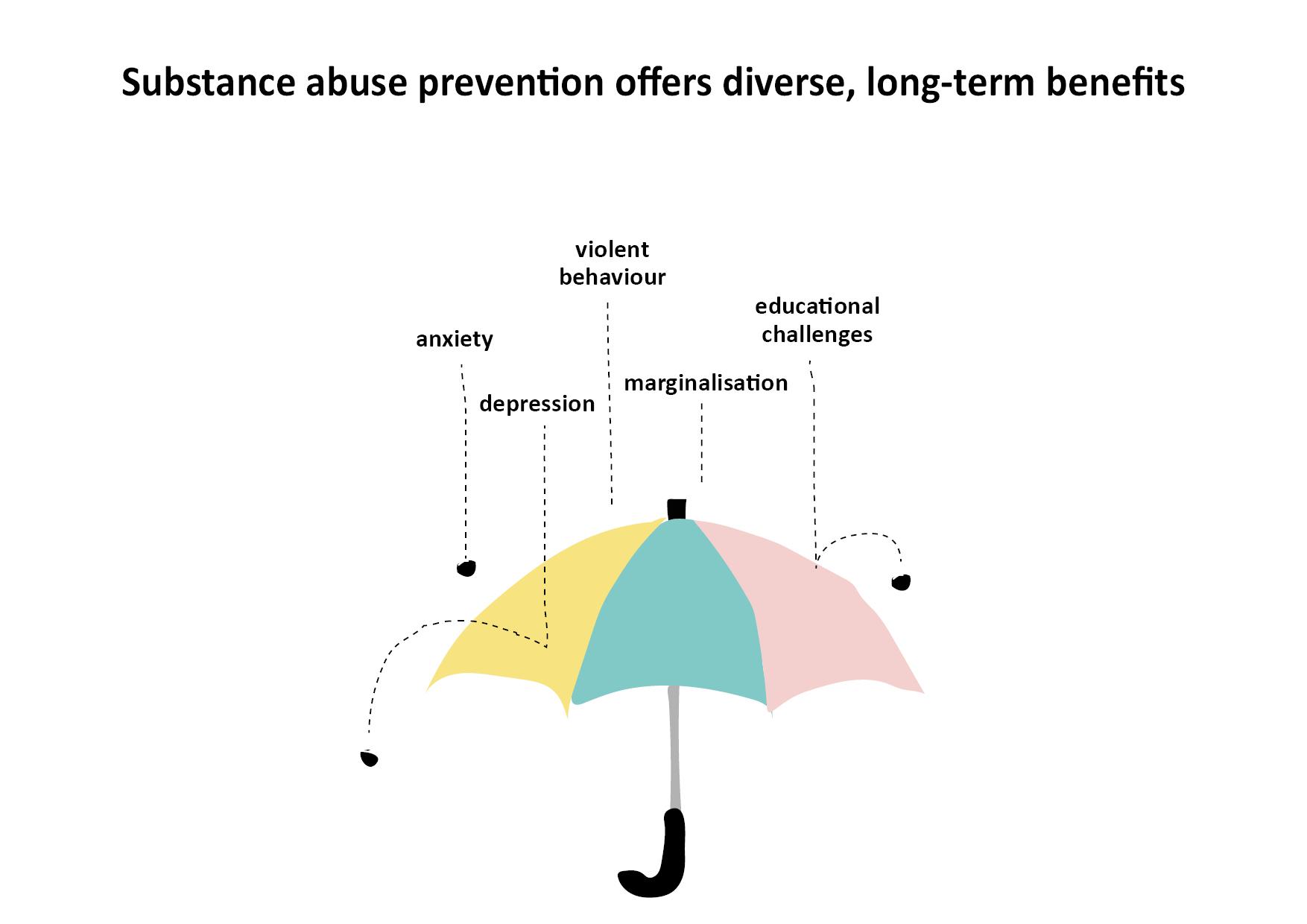What is substance abuse prevention?
Substance abuse prevention promotes health, safety and well-being by preventing and reducing the harm caused by substance abuse, gambling and gaming.

The scope of substance abuse prevention covers alcohol, nicotine products and drugs as well as gambling that causes addiction similar to that caused by substance abuse. Substance abuse prevention decreases the supply and demand of intoxicating substances and gambling and reduces their harmful effects. In Finland, the term substance use prevention is used to refer to the prevention of use, prevention of its harmful consequences as well as to the controlling of the availability of substances of abuse or opportunities for gambling.
The goal is to prevent substance abuse and gambling especially among children and young people and postpone any experiments with intoxicating substances and gambling. Substance abuse has a significant impact on people’s health and well-being.
Substance abuse prevention influences knowledge, attitudes and rights associated with intoxicating substances and gambling. Other focus areas include substance use and gambling and how they are used in practice.
Substance abuse prevention covers both the promotion of substance-free life based on the traditions of temperance work and the reduction of the harmful effects experienced by substance users in different age groups. Harmful effects can be reduced by decreasing the use of intoxicating substances and gambling and by postponing the start of their use, for instance.
A significant aspect of substance abuse prevention is societal lobbying. Political regulation can limit the presence of legal intoxicating substances and gambling in people’s everyday lives.
We all are exposed to different kinds of risks of the harmful effects of substance abuse, gambling and gaming. Work to influence the factors that increase the risk of substance abuse and protect people from this risk can be carried out throughout people’s lives. Different transitions, such as starting school, moving away from the childhood home, establishing a family, divorce, unemployment or retirement, are crucial points of time for substance abuse prevention.
At these transition phases, exposure to challenging situations and potential substance abuse increases.

Substance-related education at schools is one of the most popular forms of substance abuse prevention. At its best, substance abuse prevention reaches all age groups.
Substance abuse, gambling and gaming problems often develop to an advanced stage before they are noticed. In this case, they are difficult and expensive to resolve. By preventing substance abuse problems and addressing them early, we can achieve significant savings in social welfare, healthcare and law enforcement costs. Read more about the evidence-based methods for preventing substance use across the different age groups and settings as listed by the UN.

For its part, substance abuse prevention can prevent increasing inequality as the harmful effects of substance abuse often impair the life of already vulnerable people. Early preventive measures may efficiently protect people from risky behaviour and the resulting accumulation of problems throughout life.


